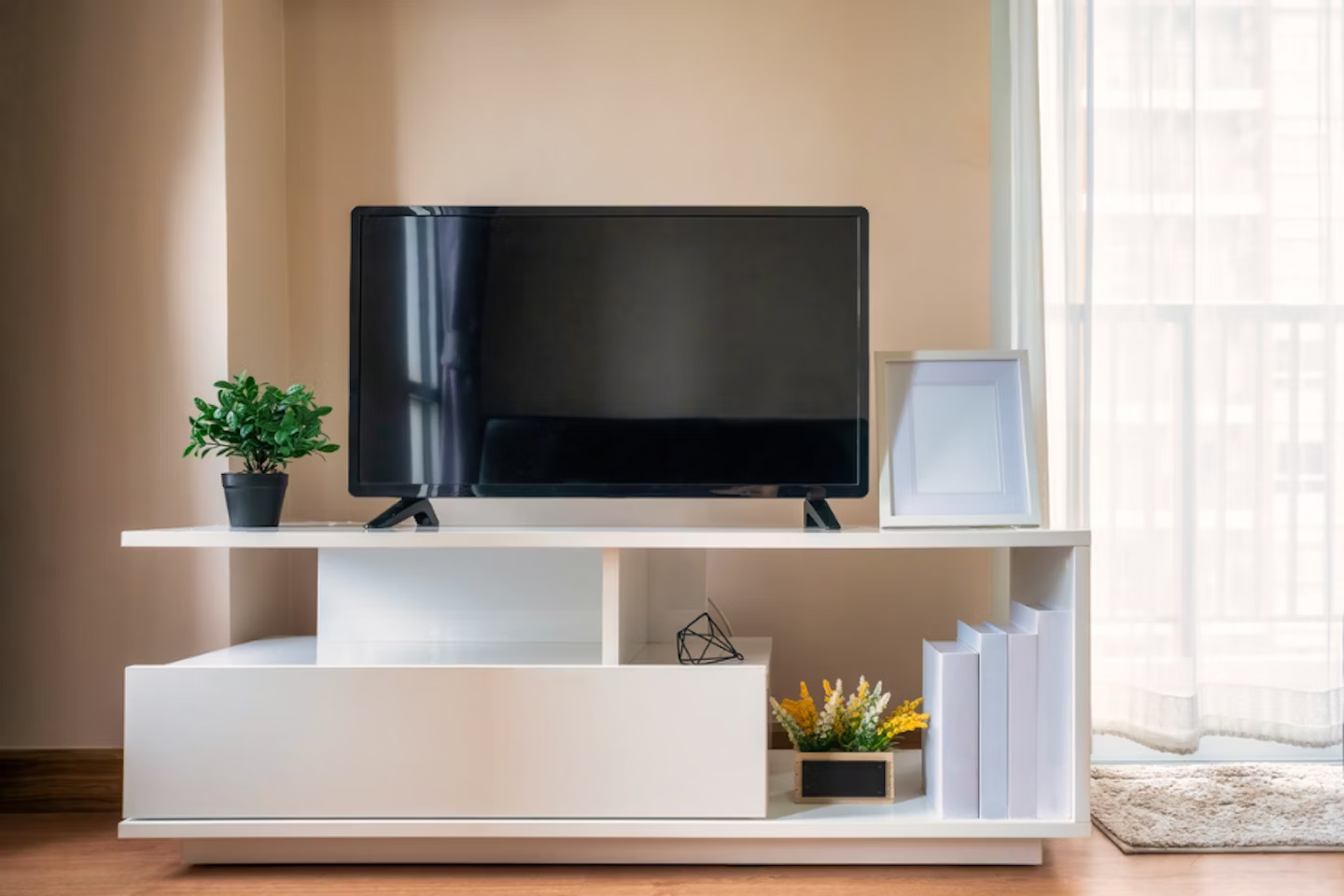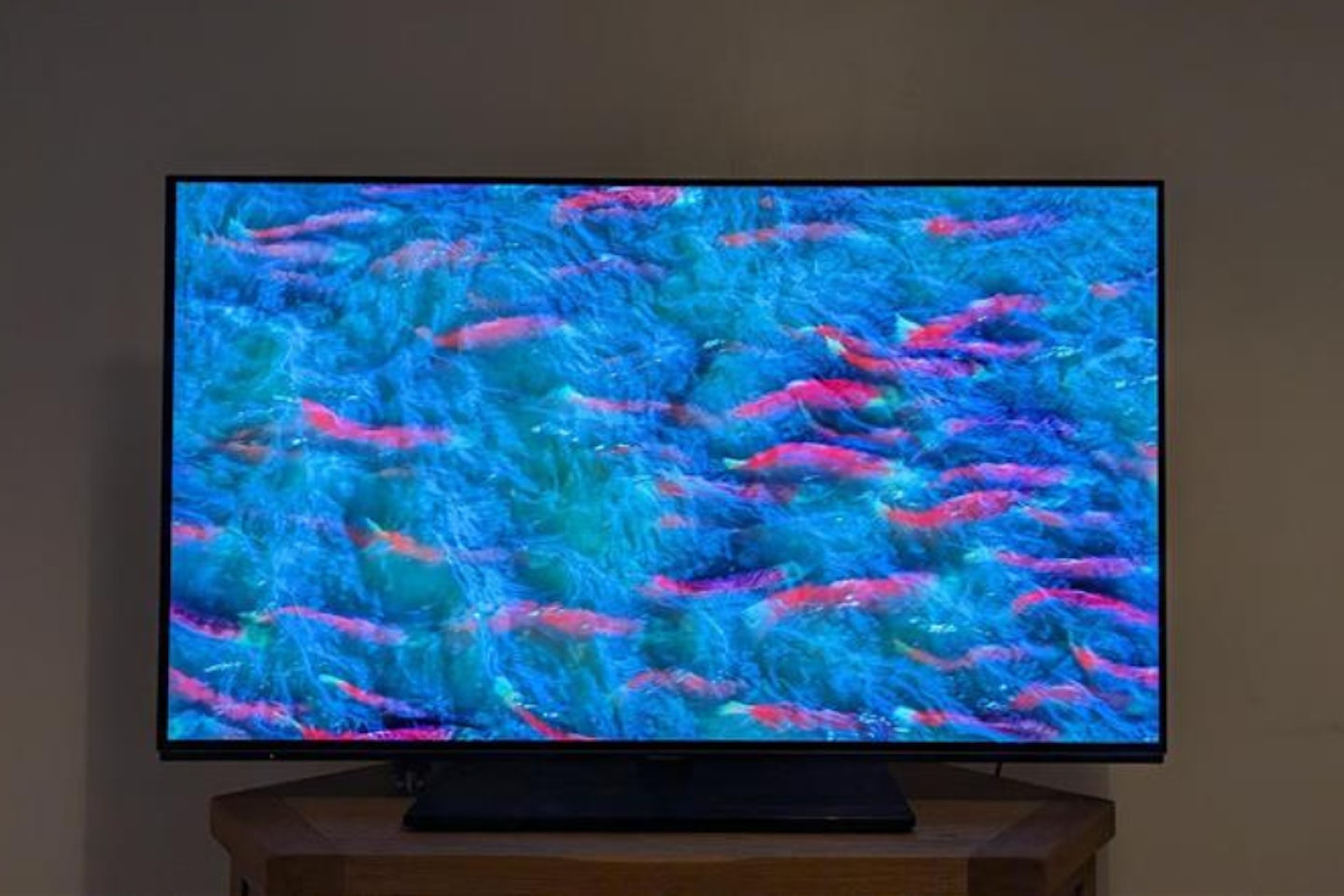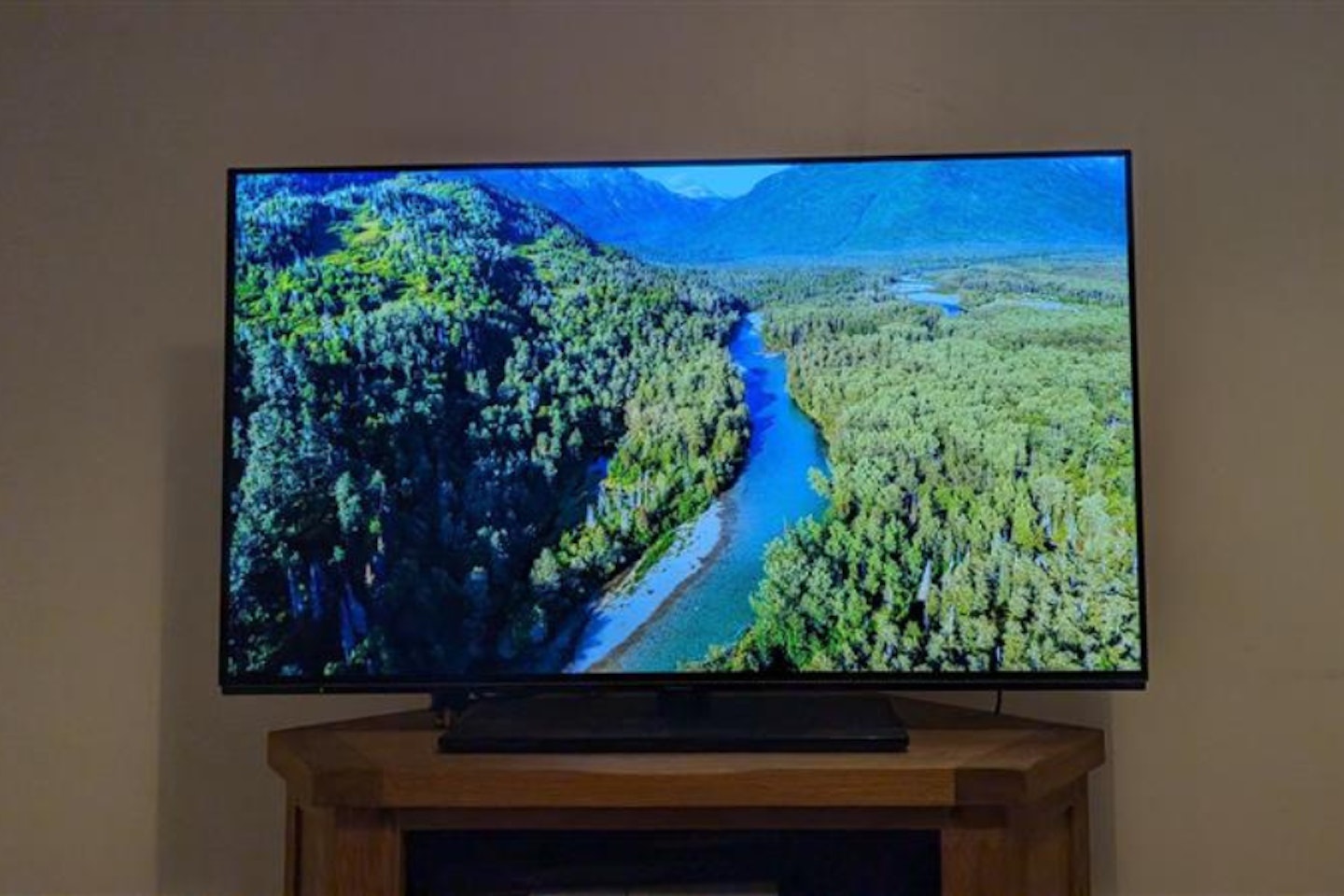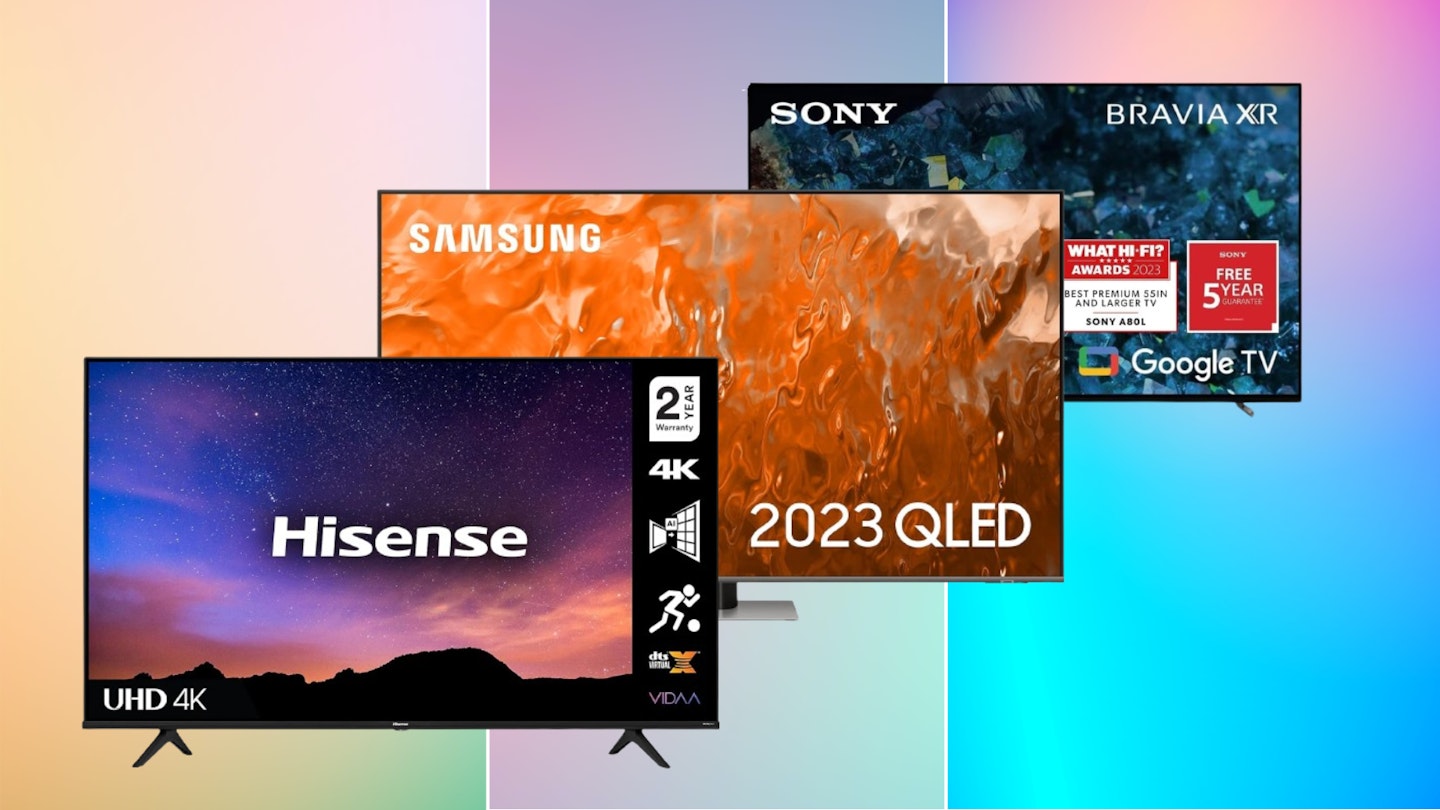So, you're in search of the best television of the year and you've come across three technologies that keep popping up; QLED, OLED and 4K. But what's the difference between them? What makes OLED so expensive? And what option should I go for in my price range?
If you're scouring the internet for information and walking away befuddled, then you're not alone. Endless jargon, tech specifications that are otherwise meaningless to those who just want to settle down in front of a great quality TV, and prices that seemingly make no sense at all - what television you should buy has become increasingly complicated over the years.
At What's The Best, we're here to enlighten some of these burning questions you may have, and perhaps help you figure out what television is the best for you.
Whether you're looking for a great budget television, a QLED powerhouse, or a speedy, razor-thin OLED TV, we've got some useful tips and advice to guide you through the internet minefield.
The basics: 4K, QLED and OLED

4K
If you've done any shopping around, whether it's for one of the best budget TVs of the year or a high-end gaming display, you've probably heard of 4K technology.
4K, or ultra-HD televisions, are televisions with a resolution of 3840 x 2160p. Resolution indicates how many pixels are on the display itself, the higher the number of pixels, the greater the resolution, and the better the picture is.
You may think that a 4K smart TV would cost a lot of money, but you're dead wrong. There's a huge range of 4K TVs under £500 on the market at this very moment, and they perform fantastically well for their cost.
QLED
QLED TV, or Quantum Dot Light Emitting Diode, is also a type of 4K TV, but how it works is slightly different from a standard LED 4K TV. The screen of a QLED television is made up of thousands of individual quantum dots which, when hit by the backlight, produce their own distinctly bright and colourful light.
These nanometer-sized quantum dots produce a colour spectrum that is unlike any other television on the market. With billions of colours and a brightness that surpasses all others, these televisions are ultra-vivid and detailed beyond belief.
You'll be surprised to know that even the best QLED televisions can be decently priced, but are rarely below £500 for even a 43-inch television. For high refresh rate gaming too, you're easily reaching upwards of £900 for a 50-inch display.
OLED
Much like QLED TVs, but even more expensive, OLED televisions are the most sought-after smart TVs on the market, on account of their ultra-high refresh rates, often millisecond response times, and infinite contrast picture that delivers deep and beautiful images.
OLED televisions are comprised of Organic Light Emitting Diodes, which, unlike any other smart TV, don't use a backlight. These televisions have self-lighting diodes, which produce their own light to create pictures on-screen. The result? Amazing, truly infinite contrast ratios.
Contrast ratio refers to the measure of a television's absolute peak brightness, and its complete darkest (measured in nits). Since OLED diodes can completely switch off, its darkest level is zero. It might be hard to believe, but OLED screens can stop emitting light altogether, creating an endlessly mesmerising contrast that looks absolutely breathtaking.
But the advantages of the best OLED TVs don't stop there, they're also designed beautifully, with razor-sharp, ultra-thin screens that are sensational to behold. Ultra-modern, with smooth refresh rates and brilliant response times, OLED TVs look impeccable.
What's the best for your budget?

If you're searching for the best TV deals, but aren't quite sure how much money you should spend, we're here to offer some advice based entirely on your price range.
£500 budget
If you're looking for something for less than £500 - you're likely to run across an array of solid televisions for just below that budget. From brands such as Samsung, LG, and Hisense, these affordable televisions are more likely than not, going to be LED.
That isn't to say that it will be a bad television, far from it, instead, it means that it just won't handle colour, speed or brightness quite as well as higher-end technologies can.
£600 budget
If you're looking at the best televisions under £600, however, you might be able to find one of Samsung's gorgeous budget QLED models, which doesn't quite deliver the true brightness of a high-end QLED TV but is certainly enough to enthral any film buff.
£1,000 budget
If you've got £1,000 to spend on a smart TV, lucky you - you've got plenty of choices on good-sized QLED televisions at around 50-55 inches. At around £800-900 you could also potentially grab a solid OLED TV that'll deliver that excellent contrast you're looking for.
£1,200 and above budget
If you're really serious about gaming, and would love to deep-dive into some next-generation PS5 gaming, you have to get yourself a proper OLED television. 120Hz refresh rates, breakneck response times, with a crisp snap to controls, you won't believe how good gaming in 4K at 120Hz really feels.
If you're a movie buff, however, and are looking for the best experience possible, as detailed in our review of Panasonic's TX-48MZ980B OLED TV, movies are far from disappointing with true OLED technology.
Are expensive OLED TVs worth it?

OLED televisions might be pretty, but they're extremely expensive compared to cheaper 4K LED TVs on the market. For those who wish to experience their favourite films, games and TV shows with fresh, bold detail and eye-popping contrast, OLED TVs are most certainly for you.
But of course, QLED TVs are similarly brilliant, and they don't face the same problems that QLED TVs have with low brightness, so if you prefer much more vibrancy over pure realism, a solid QLED TV might be the way to go - just make sure you get the best TV settings for your screen.
What TV should I get for gaming?
If you're looking for the absolute best TV for gaming, an OLED television is the way to go. OLED technology has the fastest response times and refresh rates of any television, they're rapid, and gameplay is all the better for it.
Of course, there are televisions out there with a 120Hz refresh rate, a QLED screen, and even ultra-low response times which are always cheaper than OLED, but the quality will not match that of OLED, there's no doubt about it.
What is QNED?
You may have encountered a TV that describes itself as QNED rather than QLED. These are LG TVs that have both a quantum dot layer like a QLED and a NanoCell layer. LG uses NanoCell screen technology to improve the colour display of certain TVs. Combining QLED and NanoCell into QNED results in a TV with a vibrant and colourful image comparable to an OLED.
If you come across a QNED TV that matches your needs, then it's certainly worth picking up. You can think of QNED as the in-between of QLED and OLED, and that often translates to the price as well. We wouldn't seek out QNED screens specifically, and instead consider them a nice bonus when looking for QLED TVs.
Why should you trust us?
At What's The Best, our mission is to provide accurate and reliable reviews, ensuring our readers receive honest and transparent information about the best technology products available. Anything less would undermine our commitment to being a trusted source of unbiased product information.
Our dedicated in-house writing team comprises experts with extensive experience and a genuine passion for technology. Collectively, we have spent decades testing and writing about tech, leveraging our expertise in all our articles, advice pieces and reviews.
We maintain complete editorial independence and do not accept payment for product reviews. Our writers have full control over their content, ensuring that products are selected based solely on the needs of our readers. While we may earn commissions or other compensation from links on our website, this never affects our product choices. These links enable us to continue offering valuable consumer advice, without compromising the integrity of our reviews.
Ryan Houghton is a tech writer for What’s The Best, known best for his expertise in gaming, with a particular soft spot for PC gaming, audio tech, televisions and smartphones.
Diligently writing for What’s The Best for almost two years, there are very few tech products Ryan hasn’t had his hands on to review; televisions, headphones, folding phones and even LEGO, if it’s nerdy, he’ll be there.
His well-versed history as one of the resident techies at What’s The Best has kept him keen to uncover the very best deals, savings and offers for those in need of a cracking deal to upgrade their setup.
In his downtime, Ryan most likely has his nose buried in a fantasy book, or his eyes glued to a screen whilst playing a tough-as-nails Soulslike or leisurely RPG, indulging in most forms of escapism where possible.
Subscribe to the What’s The Best Newsletter to keep up to date with more of the latest reviews and recommendations from the rest of the What’s The Best team.
